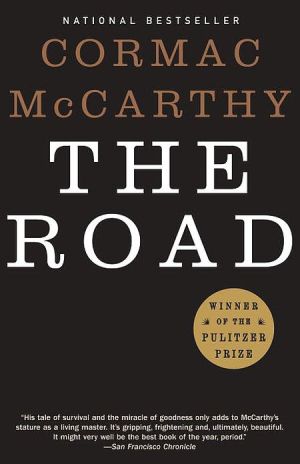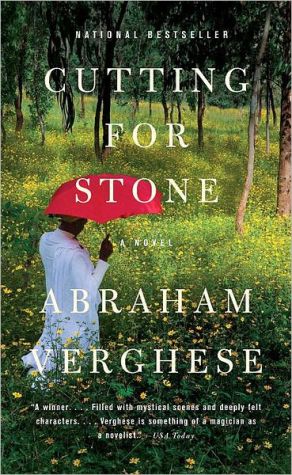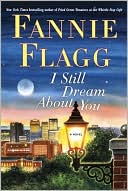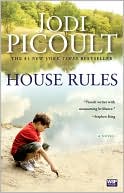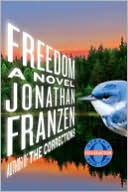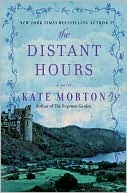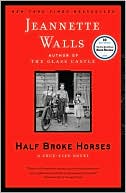The Road
NATIONAL BESTSELLER\ PULITZER PRIZE WINNER\ National Book Critic's Circle Award Finalist\ A New York Times Notable Book One of the Best Books of the Year\ The Boston Globe, The Christian Science Monitor, The Denver Post, The Kansas City Star, Los Angeles Times, New York, People, Rocky Mountain News, Time, The Village Voice, The Washington Post\ The searing, postapocalyptic novel destined to become Cormac McCarthy's masterpiece.\ A father and his son walk alone through burned America. Nothing...
Search in google:
A searing, postapocalyptic novel destined to become Cormac McCarthy’s masterpiece.A father and his son walk alone through burned America. Nothing moves in the ravaged landscape save the ash on the wind. It is cold enough to crack stones, and when the snow falls it is gray. The sky is dark. Their destination is the coast, although they don’t know what, if anything, awaits them there. They have nothing; just a pistol to defend themselves against the lawless bands that stalk the road, the clothes they are wearing, a cart of scavenged food—and each other.The Road is the profoundly moving story of a journey. It boldly imagines a future in which no hope remains, but in which the father and his son, “each the other’s world entire,” are sustained by love. Awesome in the totality of its vision, it is an unflinching meditation on the worst and the best that we are capable of: ultimate destructiveness, desperate tenacity, and the tenderness that keeps two people alive in the face of total devastation.The San Francisco ChronicleHis tale of survival and the miracle of goodness only adds to McCarthy's stature as a living master. It's gripping, frightning, and, ultimately, beautiful. It might very well be the best book of the year, period.
The Road (Movie Tie-in Edition)\ \ By Cormac McCarthy \ Vintage\ Copyright © 2009 Cormac McCarthy All right reserved.\ ISBN: 9780307476319 \ \ \ When he woke in the woods in the dark and the cold of the night he'd reach out to touch the child sleeping beside him. Nights dark beyond darkness and the days more gray each one than what had gone before. Like the onset of some cold glaucoma dimming away the world. His hand rose and fell softly with each precious breath. He pushed away the plastic tarpaulin and raised himself in the stinking robes and blankets and looked toward the east for any light but there was none. In the dream from which he'd wakened he had wandered in a cave where the child led him by the hand. Their light playing over the wet flowstone walls. Like pilgrims in a fable swallowed up and lost among the inward parts of some granitic beast. Deep stone flues where the water dripped and sang. Tolling in the silence the minutes of the earth and the hours and the days of it and the years without cease. Until they stood in a great stone room where lay a black and ancient lake. And on the far shore a creature that raised its dripping mouth from the rimstone pool and stared into the light with eyes dead white and sightless as the eggs of spiders. It swung its head low over the water as if to take the scent of what it could not see. Crouching there pale and naked and translucent, its alabaster bones cast up in shadow on the rocks behind it. Its bowels, its beatingheart. The brain that pulsed in a dull glass bell. It swung its head from side to side and then gave out a low moan and turned and lurched away and loped soundlessly into the dark.\ With the first gray light he rose and left the boy sleeping and walked out to the road and squatted and studied the country to the south. Barren, silent, godless. He thought the month was October but he wasnt sure. He hadnt kept a calendar for years. They were moving south. There'd be no surviving another winter here.\ When it was light enough to use the binoculars he glassed the valley below. Everything paling away into the murk. The soft ash blowing in loose swirls over the blacktop. He studied what he could see. The segments of road down there among the dead trees. Looking for anything of color. Any movement. Any trace of standing smoke. He lowered the glasses and pulled down the cotton mask from his face and wiped his nose on the back of his wrist and then glassed the country again. Then he just sat there holding the binoculars and watching the ashen daylight congeal over the land. He knew only that the child was his warrant. He said: If he is not the word of God God never spoke.\ When he got back the boy was still asleep. He pulled the blue plastic tarp off of him and folded it and carried it out to the grocery cart and packed it and came back with their plates and some cornmeal cakes in a plastic bag and a plastic bottle of syrup. He spread the small tarp they used for a table on the ground and laid everything out and he took the pistol from his belt and laid it on the cloth and then he just sat watching the boy sleep. He'd pulled away his mask in the night and it was buried somewhere in the blankets. He watched the boy and he looked out through the trees toward the road. This was not a safe place. They could be seen from the road now it was day. The boy turned in the blankets. Then he opened his eyes. Hi, Papa, he said.\ I'm right here.\ I know.\ An hour later they were on the road. He pushed the cart and both he and the boy carried knapsacks. In the knapsacks were essential things. In case they had to abandon the cart and make a run for it. Clamped to the handle of the cart was a chrome motorcycle mirror that he used to watch the road behind them. He shifted the pack higher on his shoulders and looked out over the wasted country. The road was empty. Below in the little valley the still gray serpentine of a river. Motionless and precise. Along the shore a burden of dead reeds. Are you okay? he said. The boy nodded. Then they set out along the blacktop in the gunmetal light, shuffling through the ash, each the other's world entire.\ They crossed the river by an old concrete bridge and a few miles on they came upon a roadside gas station. They stood in the road and studied it. I think we should check it out, the man said. Take a look. The weeds they forded fell to dust about them. They crossed the broken asphalt apron and found the tank for the pumps. The cap was gone and the man dropped to his elbows to smell the pipe but the odor of gas was only a rumor, faint and stale. He stood and looked over the building. The pumps standing with their hoses oddly still in place. The windows intact. The door to the service bay was open and he went in. A standing metal toolbox against one wall. He went through the drawers but there was nothing there that he could use. Good half-inch drive sockets. A ratchet. He stood looking around the garage. A metal barrel full of trash. He went into the office. Dust and ash everywhere. The boy stood in the door. A metal desk, a cashregister. Some old automotive manuals, swollen and sodden. The linoleum was stained and curling from the leaking roof. He crossed to the desk and stood there. Then he picked up the phone and dialed the number of his father's house in that long ago. The boy watched him. What are you doing? he said.\ A quarter mile down the road he stopped and looked back. We're not thinking, he said. We have to go back. He pushed the cart off the road and tilted it over where it could not be seen and they left their packs and went back to the station. In the service bay he dragged out the steel trashdrum and tipped it over and pawed out all the quart plastic oilbottles. Then they sat in the floor decanting them of their dregs one by one, leaving the bottles to stand upside down draining into a pan until at the end they had almost a half quart of motor oil. He screwed down the plastic cap and wiped the bottle off with a rag and hefted it in his hand. Oil for their little slutlamp to light the long gray dusks, the long gray dawns. You can read me a story, the boy said. Cant you, Papa? Yes, he said. I can.\ . . .\ On the far side of the river valley the road passed through a stark black burn. Charred and limbless trunks of trees stretching away on every side. Ash moving over the road and the sagging hands of blind wire strung from the blackened lightpoles whining thinly in the wind. A burned house in a clearing and beyond that a reach of meadowlands stark and gray and a raw red mudbank where a roadworks lay abandoned. Farther along were billboards advertising motels. Everything as it once had been save faded and weathered. At the top of the hill they stood in the cold and the wind, getting their breath. He looked at the boy. I'm all right, the boy said. The man put his hand on his shoulder and nodded toward the open country below them. He got the binoculars out of the cart and stood in the road and glassed the plain down there where the shape of a city stood in the grayness like a charcoal drawing sketched across the waste. Nothing to see. No smoke. Can I see? the boy said. Yes. Of course you can. The boy leaned on the cart and adjusted the wheel. What do you see? the man said. Nothing. He lowered the glasses. It's raining. Yes, the man said. I know.\ They left the cart in a gully covered with the tarp and made their way up the slope through the dark poles of the standing trees to where he'd seen a running ledge of rock and they sat under the rock overhang and watched the gray sheets of rain blow across the valley. It was very cold. They sat huddled together wrapped each in a blanket over their coats and after a while the rain stopped and there was just the dripping in the woods.\ When it had cleared they went down to the cart and pulled away the tarp and got their blankets and the things they would need for the night. They went back up the hill and made their camp in the dry dirt under the rocks and the man sat with his arms around the boy trying to warm him. Wrapped in the blankets, watching the nameless dark come to enshroud them. The gray shape of the city vanished in the night's onset like an apparition and he lit the little lamp and set it back out of the wind. Then they walked out to the road and he took the boy's hand and they went to the top of the hill where the road crested and where they could see out over the darkening country to the south, standing there in the wind, wrapped in their blankets, watching for any sign of a fire or a lamp. There was nothing. The lamp in the rocks on the side of the hill was little more than a mote of light and after a while they walked back. Everything too wet to make a fire. They ate their poor meal cold and lay down in their bedding with the lamp between them. He'd brought the boy's book but the boy was too tired for reading. Can we leave the lamp on till I'm asleep? he said. Yes. Of course we can.\ He was a long time going to sleep. After a while he turned and looked at the man. His face in the small light streaked with black from the rain like some old world thespian. Can I ask you something? he said.\ Yes. Of course.\ Are we going to die?\ Sometime. Not now.\ And we're still going south.\ Yes.\ So we'll be warm.\ Yes.\ Okay.\ Okay what?\ Nothing. Just okay.\ Go to sleep.\ Okay.\ I'm going to blow out the lamp. Is that okay?\ Yes. That's okay.\ And then later in the darkness: Can I ask you something?\ Yes. Of course you can.\ What would you do if I died?\ If you died I would want to die too.\ So you could be with me?\ Yes. So I could be with you.\ Okay.\ He lay listening to the water drip in the woods. Bedrock, this. The cold and the silence. The ashes of the late world carried on the bleak and temporal winds to and fro in the void. Carried forth and scattered and carried forth again. Everything uncoupled from its shoring. Unsupported in the ashen air. Sustained by a breath, trembling and brief. If only my heart were stone.\ He woke before dawn and watched the gray day break. Slow and half opaque. He rose while the boy slept and pulled on his shoes and wrapped in his blanket he walked out through the trees. He descended into a gryke in the stone and there he crouched coughing and he coughed for a long time. Then he just knelt in the ashes. He raised his face to the paling day. Are you there? he whispered. Will I see you at the last? Have you a neck by which to throttle you? Have you a heart? Damn you eternally have you a soul? Oh God, he whispered. Oh God.\ They passed through the city at noon of the day following. He kept the pistol to hand on the folded tarp on top of the cart. He kept the boy close to his side. The city was mostly burned. No sign of life. Cars in the street caked with ash, everything covered with ash and dust. Fossil tracks in the dried sludge. A corpse in a doorway dried to leather. Grimacing at the day. He pulled the boy closer. Just remember that the things you put into your head are there forever, he said. You might want to think about that.\ You forget some things, dont you?\ Yes. You forget what you want to remember and you remember what you want to forget.\ There was a lake a mile from his uncle's farm where he and his uncle used to go in the fall for firewood. He sat in the back of the rowboat trailing his hand in the cold wake while his uncle bent to the oars. The old man's feet in their black kid shoes braced against the uprights. His straw hat. His cob pipe in his teeth and a thin drool swinging from the pipebowl. He turned to take a sight on the far shore, cradling the oarhandles, taking the pipe from his mouth to wipe his chin with the back of his hand. The shore was lined with birchtrees that stood bone pale against the dark of the evergreens beyond. The edge of the lake a riprap of twisted stumps, gray and weathered, the windfall trees of a hurricane years past. The trees themselves had long been sawed for firewood and carried away. His uncle turned the boat and shipped the oars and they drifted over the sandy shallows until the transom grated in the sand. A dead perch lolling belly up in the clear water. Yellow leaves. They left their shoes on the warm painted boards and dragged the boat up onto the beach and set out the anchor at the end of its rope. A lardcan poured with concrete with an eyebolt in the center. They walked along the shore while his uncle studied the treestumps, puffing at his pipe, a manila rope coiled over his shoulder. He picked one out and they turned it over, using the roots for leverage, until they got it half floating in the water. Trousers rolled to the knee but still they got wet. They tied the rope to a cleat at the rear of the boat and rowed back across the lake, jerking the stump slowly behind them. By then it was already evening. Just the slow periodic rack and shuffle of the oarlocks. The lake dark glass and windowlights coming on along the shore. A radio somewhere. Neither of them had spoken a word. This was the perfect day of his childhood. This the day to shape the days upon.\ From the Trade Paperback edition.\ Continues...\ \ \ \ Excerpted from The Road (Movie Tie-in Edition) by Cormac McCarthy Copyright © 2009 by Cormac McCarthy. Excerpted by permission.\ All rights reserved. No part of this excerpt may be reproduced or reprinted without permission in writing from the publisher.\ Excerpts are provided by Dial-A-Book Inc. solely for the personal use of visitors to this web site. \ \ \
\ From Barnes & NobleAsk any literary critic -- and most discerning readers -- to name the greatest living American novelist, and Cormac McCarthy is sure to surface as a major contender. Best known for his powerful regional fiction (Sutree, the Border Trilogy, Blood Meridian, et al), this dazzling prose stylist crafts tragic, unforgettable stories suffused with violence, alienation, and an undeniably apocalyptic vision. Now, in what we consider McCarthy's best novel to date, the apocalypse itself becomes a set piece. Unfolding in a terrifying future where Armageddon has been waged and lost, The Road traces the odyssey of a father and his young son through a desolate landscape of devastation and danger. Powerful, moving, and extraordinary by any standard, this is McCarthy at his greatest and gravest.\ \ \ \ \ From the Publisher"His tale of survival and the miracle of goodness only adds to McCarthy's stature as a living master. It's gripping, frightening and, ultimately, beautiful. It might very well be the best book of the year, period." —San Francisco Chronicle\ "Vivid, eloquent . . . The Road is the most readable of [McCarthy's] works, and consistently brilliant in its imagining of the posthumous condition of nature and civilization." —The New York Times Book Review\ "One of McCarthy's best novels, probably his most moving and perhaps his most personal." —Los Angeles Times Book Review\ "Illuminated by extraordinary tenderness. . . . Simple yet mysterious, simultaneously cryptic and crystal clear. The Road offers nothing in the way of escape or comfort. But its fearless wisdom is more indelible than reassurance could ever be." —The New York Times\ "No American writer since Faulkner has wandered so willingly into the swamp waters of deviltry and redemption. . . . [McCarthy] has written this last waltz with enough elegant reserve to capture what matters most." —The Boston Globe\ "There is an urgency to each page, and a raw emotional pull . . . making [The Road] easily one of the most harrowing books you'll ever encounter. . . . Once opened, [it is] nearly impossible to put down; it is as if you must keep reading in order for the characters to stay alive. . . . The Road is a deeply imagined work and harrowing no matter what your politics." —Bookforum\ "We find this violent, grotesque world rendered in gorgeous, melancholic, even biblical cadences. . . . Few books can do more; few have done better. Read this book." —Rocky Mountain News\ "A dark book that glows with the intensity of [McCarthy's] huge gift for language. . . . Why read this? . . . Because in its lapidary transcription of the deepest despair short of total annihilation we may ever know, this book announces the triumph of language over nothingness." —Chicago Tribune\ "The love between the father and the son is one of the most profound relationships McCarthy has ever written."\ —The Christian Science Monitor\ "The Road is a wildly powerful and disturbing book that exposes whatever black bedrock lies beneath grief and horror. Disaster has never felt more physically and spiritually real." —Time\ "The Road is the logical culmination of everything [McCarthy]'s written." —Newsweek\ "It's hard to think of [an apocalypse tale] as beautifully, hauntingly constructed as this one. McCarthy possesses a massive, Biblical vocabulary and he unleashes it in this book with painterly effect. . . . The Road takes him to a whole new level. . . . It will grip even the coldest human heart." —The Star-Ledger (Newark)\ "McCarthy is a gutsy, powerful storyteller. . . . The writing throughout is magnificent." —Chicago Sun-Times\ "Devastating. . . . McCarthy has never seemed more at home, more eloquent, than in the sere, postapocalyptic ash land of The Road. . . . Extraordinarily lovely and sad. . . . [A] masterpiece." —Entertainment Weekly\ "His most compelling, moving and accessible novel since All the Pretty Horses. . . . McCarthy brilliantly captures the knife edge that fugitives in a hostile world stand on. . . . Amid this Godot-like bleakness, McCarthy shares something vital and enduring about the boy's spirit, his father's love and the nature of bravery itself." —USA Today\ \ \ \ Los Angeles TimesOne of McCarthy's best novels, probably his most moving and perhaps his most personal.\ \ \ \ \ BookforumThere is an urgency to each page, and a raw emotional pull . . . making [The Road] easily one of the most harrowing books you'll ever encounter. . . . Once opened, [it is] nearly impossible to put down; it is as if you must keep reading in order for the characters to stay alive. . . . The Road is a deeply imagined work and harrowing no matter what your politics.\ \ \ \ \ Chicago TribuneA dark book that glows with the intensity of [McCarthy's] huge gift for language. . . . Why read this? . . . Because in its lapidary transcription of the deepest despair short of total annihilation we may ever know, this book announces the triumph of language over nothingness.\ \ \ \ \ Janet MaslinThis is an exquisitely bleak incantation -- pure poetic brimstone. Mr. McCarthy has summoned his fiercest visions to invoke the devastation. He gives voice to the unspeakable in a terse cautionary tale that is too potent to be numbing, despite the stupefying ravages it describes. Mr. McCarthy brings an almost biblical fury as he bears witness to sights man was never meant to see.\ — The New York Times\ \ \ \ \ The San Francisco ChronicleHis tale of survival and the miracle of goodness only adds to McCarthy's stature as a living master. It's gripping, frightning, and, ultimately, beautiful. It might very well be the best book of the year, period.\ \ \ \ \ William KennedyThe Road is a dynamic tale, offered in the often exalted prose that is McCarthy's signature, but this time in restrained doses—short, vivid sentences, episodes only a few paragraphs or a few lines long…the most readable of his works, and consistently brilliant in its imagining of the posthumous condition of nature and civilization—"the frailty of everything revealed at last. Old and troubling issues resolved into nothingness and night."\ —The New York Times Book Review\ \ \ \ \ Ron CharlesIn Cormac McCarthy's new novel, The Road, the bloodbath is finally complete. The violence that animated his great Western novels has been superseded by a flash of nuclear annihilation, which also blasts away some of what we expect from the reclusive author's work. With this apocalyptic tale, McCarthy has moved into the allegorical realm of Samuel Beckett and José Saramago -- and, weirdly, George Romero.\ — The Washington Post\ \ \ \ \ Publishers WeeklyMcCarthy's latest novel, a frightening apocalyptic vision, is narrated by a nameless man, one of the few survivors of an unspecified civilization-ending catastrophe. He and his young son are trekking along a treacherous highway, starving and freezing, trying to avoid roving cannibal armies. The tale, and their lives, are saved from teetering over the edge of bleakness thanks to the man's fierce belief that they are "the good guys" who are preserving the light of humanity. In this stark, effective production, Stechschulte gives the father an appropriately harsh, weary voice that sways little from its numbed register except to urge on the weakening boy or soothe his fears after an encounter with barbarians. When they uncover some vestige of the former world, the man recalls its vanished wonder with an aching nostalgia that makes the listener's heart swell. Stechschulte portrays the son with a mournful, slightly breathy tone that emphasizes the child's whininess, making him much less sympathetic than his resourceful father. With no music or effects interrupting Stechschulte's carefully measured pace and gruff, straightforward delivery, McCarthy's darkly poetic prose comes alive in a way that will transfix listeners. Simultaneous release with the Knopf hardcover (Reviews, July 24). (Oct.)\ Copyright 2006 Reed Business Information.\ \ \ \ \ KLIATTTo quote from the review of the audiobook in KLIATT, May 2007: The Man and the Boy are wandering the countryside, trying to find food and simply to survive. The Boy was born a short time after a manmade disaster, probably an atomic bomb, destroyed the world as we know it. Years have passed and the Boy is now somewhere in mid-childhood. His mother has long since left them, choosing death over hopelessness. He and his father trudge along the road, pushing an old shopping cart with their meager belongings, following an old map, avoiding "the bad guys," looking for food and heading for the coast. Their inventiveness, their love for each other, and their sheer endurance are symbols of hope. They encounter many a horrific situation, but always they have each other—until they don't. (Editor's note: The Road has won the Pulitzer Prize for fiction, reflecting the importance of the author in modern American literature.)\ \ \ \ \ Library JournalWinner of the National Book Award and the National Book Critics Circle Award, McCarthy (All the Pretty Horses) here offers a prescient account of a man and his son trying to survive in a devastated country where food is scarce and everyone has become a scavenger. The term survival of the fittest rings true here-very few people remain, and friends are extinct. Essentially, this is a story about nature vs. nurture, commitment and promises, and though there aren't many characters, there is abundant life in the prose. We are reminded how McCarthy has mastered the world outside of our domestic and social circles, with each description reading as if he had pulled a scene from the landscape and pasted it in the book. He uses metaphors the way some writers use punctuation, sprinkling them about with an artist's eye, showing us that literature from the heart still exists. Recommended for all libraries. [See Prepub Alert, LJ 5/1/06.]-Stephen Morrow, Columbus, OH Copyright 2006 Reed Business Information.\ \ \ \ \ Kirkus ReviewsEven within the author's extraordinary body of work, this stands as a radical achievement, a novel that demands to be read and reread. McCarthy (No Country for Old Men, 2005, etc.) pushes his thematic obsessions to their extremes in a parable that reads like Night of the Living Dead as rewritten by Samuel Beckett. Where much of McCarthy's fiction has been set in the recent past of the South and West, here he conjures a nightmare of an indeterminate future. A great fire has left the country covered in layers of ash and littered with incinerated corpses. Foraging through the wasteland are a father and son, neither named (though the son calls the father "Papa"). The father dimly remembers the world as it was and occasionally dreams of it. The son was born on the cusp of whatever has happened-apocalypse? holocaust?-and has never known anything else. His mother committed suicide rather than face the unspeakable horror. As they scavenge for survival, they consider themselves the "good guys," carriers of the fire, while most of the few remaining survivors are "bad guys," cannibals who eat babies. In order to live, they must keep moving amid this shadowy landscape, in which ashes have all but obliterated the sun. In their encounters along their pilgrimage to the coast, where things might not be better but where they can go no further, the boy emerges as the novel's moral conscience. The relationship between father and son has a sweetness that represents all that's good in a universe where conventional notions of good and evil have been extinguished. Amid the bleakness of survival-through which those who wish they'd never been born struggle to persevere-there are glimmers of comedy in an encounterwith an old man who plays the philosophical role of the Shakespearean fool. Though the sentences of McCarthy's recent work are shorter and simpler than they once were, his prose combines the cadence of prophecy with the indelible images of poetry. A novel of horrific beauty, where death is the only truth. First printing of 250,000\ \
